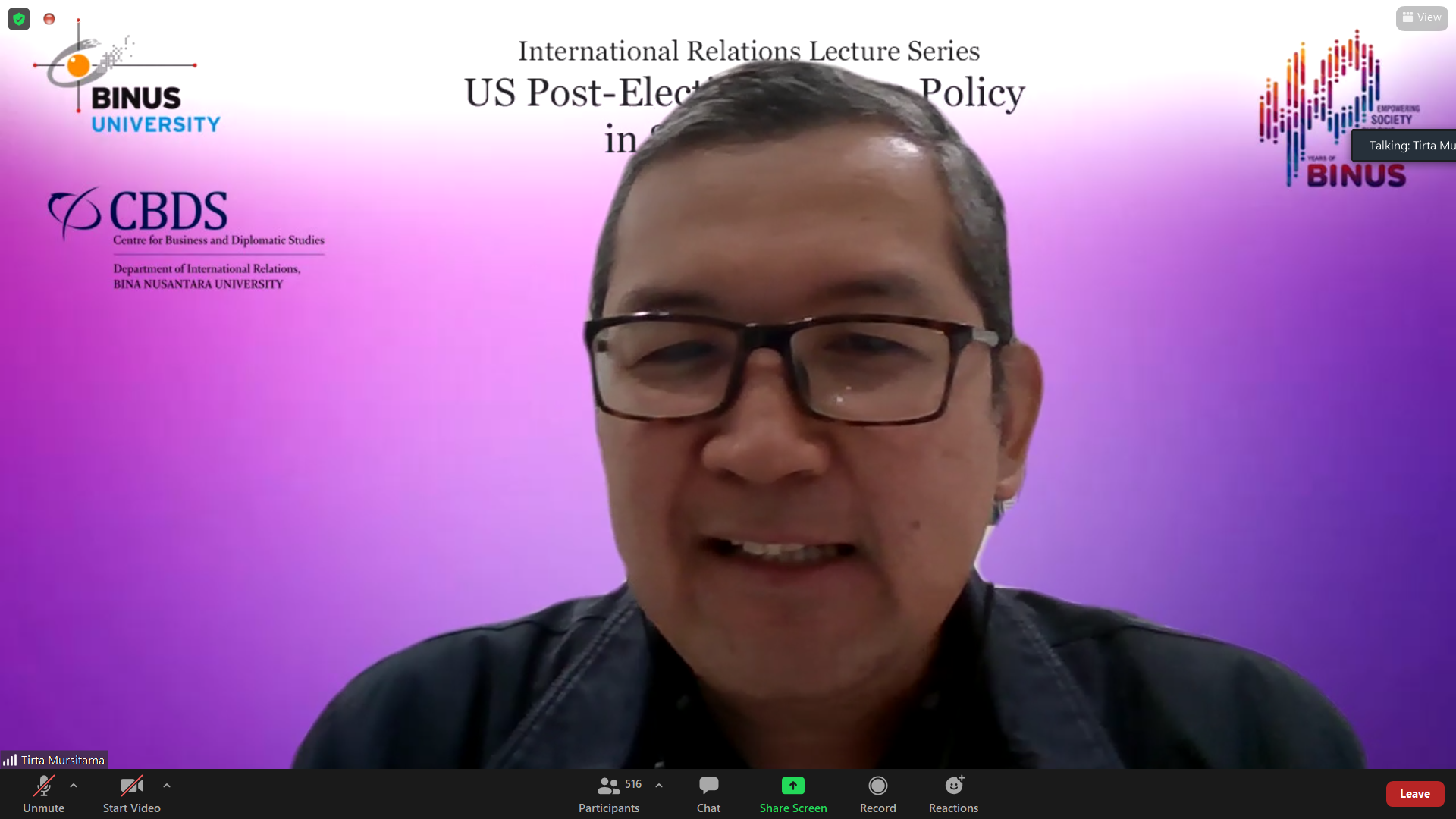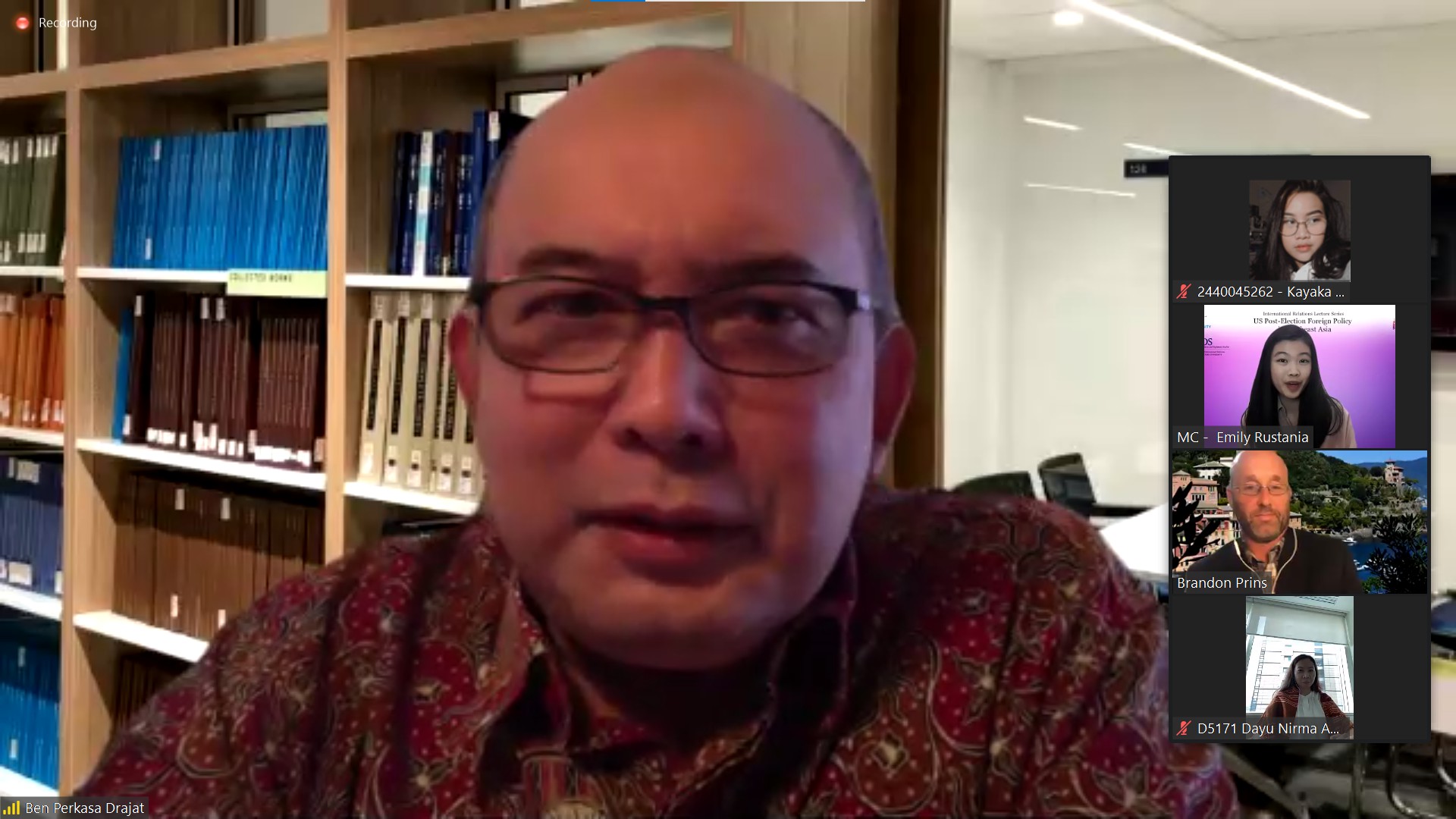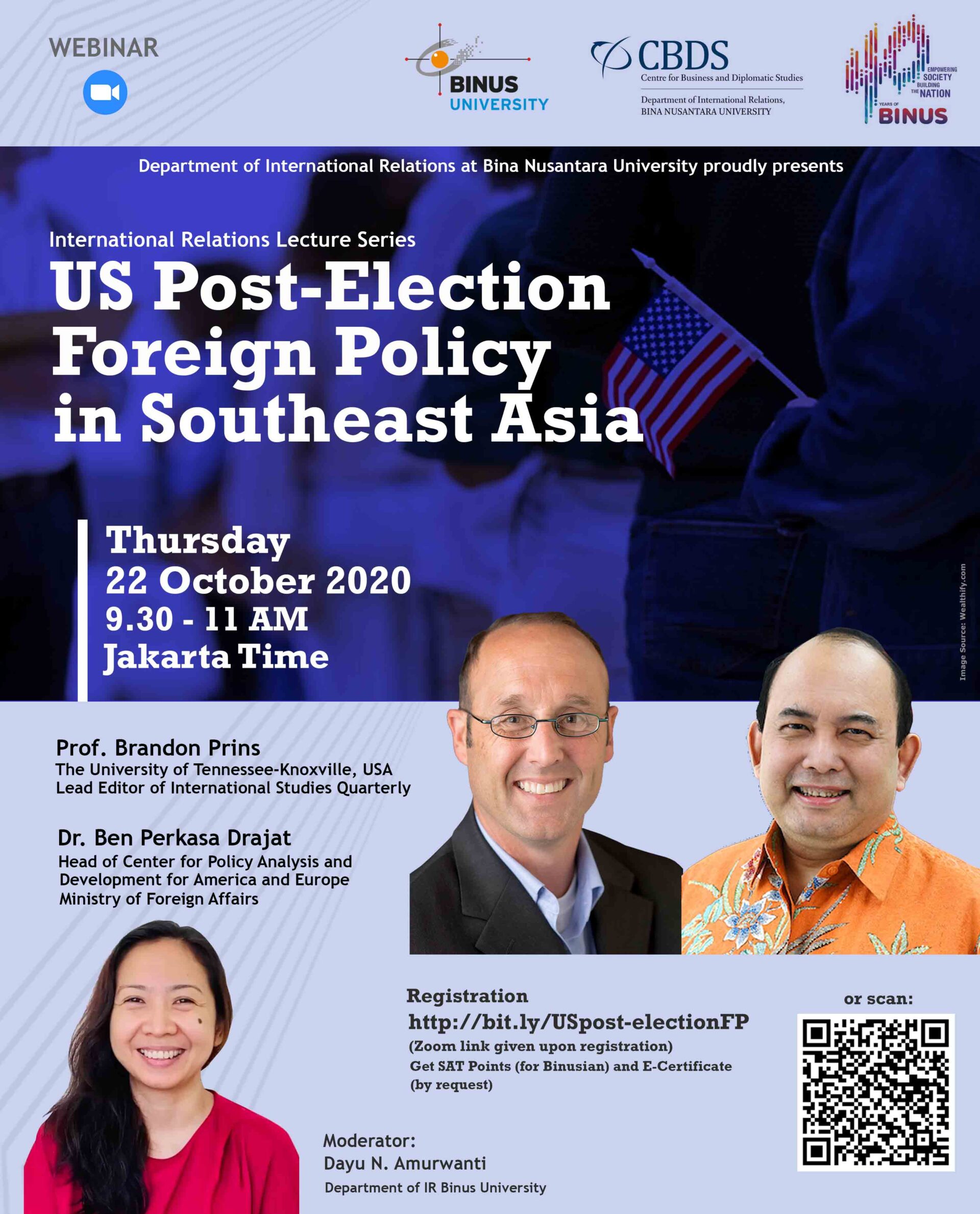CBDS-International Relations Lecture Series: US Post-Election Foreign Policy in Southeast Asia
On October 22nd 2020, the Centre for Business and Diplomatic Studies (CBDS) International Relations (IR) department at Bina Nusantara (BINUS) University is organising a webinar forum on “US post-election foreign policy in SE Asia”. This event is in line with CBDS’s commitment to promote research and deliberation on diplomacy, business, international relations, and developmental issues particularly in Indonesia, Southeast Asia, and the Asia Pacific.
The event officially opened by opening remarks from Prof. Tirta Nugraha Mursitama as The Vice Rector of Research and Technology Transfer and Executive Director of the Centre for Business and Diplomatic Studies (CBDS) International Relations (IR) department at Bina Nusantara (BINUS) University.

Moderated by Dayu Nirma Amurwanti, lecturer from Department of IR Bina Nusantara University, the webinar presents insightful perspectives from a prominent foreign policy scholar and a high-ranked diplomat as CBDS aims to provide “a bridge” for IR scholars and diplomatic corps to discuss this timely issue, especially by looking at the consequences of the US presidential election for the South East (SE) Asia region. The first speaker is Professor Brandon Prins from the University of Tennessee-Knoxville (USA). Currently, he serves as co-lead editor of a prominent IR journal, International Studies Quarterly (ISQ).

In his presentation, Professor Prins who is also a Global Security Fellow with the Howard Baker Center for Public Policy argues “Regardless of who wins the presidential election, US involvement in the Indo-Pacific will only deepen given Asia’s importance to the US and global economies and the security interests the US has in the region.”
This view is shared by the second speaker, Dr. Ben Perkasa Drajat, who currently serves as the Head of Centre for Policy Analysis and Development on American and European Regions, Ministry of Foreign Affairs of the Republic of Indonesia. “The United States’ contribution in Southeast Asia will continue to be significant as the region is very important regardless who will win in the upcoming election.”

Prof Prins elaborates President Trump’s worldview as “America First” where economic nationalism becomes the core interest of his foreign policy. On the other hand, Joe Biden views the world as a liberal internationalist who are pro-alliances, pro-multilateralism, and pro-institutionalism. His plan is to expand the US security portfolio by multilateralism instead of unilateralism like what Trump has been doing in the last four years.

Should the trade war continue, Biden’s administration is more likely to confront China with allies by reducing or eliminating tariffs, said Prins. New administration will also mean the US resuming trade deals with Asian countries, for example through the Trans-Pacific Partnership (TPP). America under Biden will continue diplomacy with North Korea, but not presidential direct diplomacy.
Dr Drajat also highlights the absence of President Trump in ASEAN summits, however Indonesia and SE Asia will always be America’s top priority as Indonesia and the region provide strategic partnership and potential market to the US.




Comments :